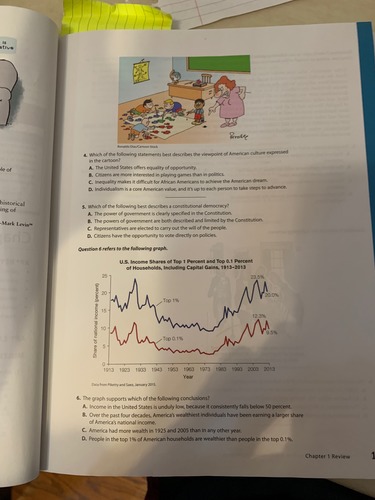The Ethics in Government Act limits the post-government employment of former Congress members by not permitting them to
a. lobby any executive agencies for two years, but only on matters over which they had previously had any responsibility.
b. lobby Congress for five years after leaving office.
c. lobby agencies or Congress for two years after leaving office.
d. lobby Congress for one year after leaving office.
D
You might also like to view...
Identify a true statement about the president's power to influence the country's economy.
A. The president'sability to control the level of economic activity is not subject to any limits. B. The president must go public to influence the economy of the country. C. Each year, the president sends Congress a suggested budget about the amounts of money the government will need for its programs. D. The president sends thePresident's Finance Report,which recommends ways to improve the nation's economy, to Congress. E. Every two years, the president sends a suggested budget report that presents the current state of the nation's economy to his political party.
How is the president of the Commission chosen? a. S/he is nominated by the European Council (EU Council) and approved by the European Parliament
b. S/he is elected by his/her fellow commissioners. c. S/he is popularly elected alongside the European Parliament. d. S/he is nominated by the European Council (EU Council), formally appointed by the Council of Ministers, and approved by the European Parliament. e. S/he is chosen by a majority vote of the European Parliament, although the European Council (EU Council) has the right to veto the candidate in which case the Parliament must choose another candidate which the Council cannot veto.
Barbour and Wright conclude that a result of the media's focus on image and scandal has been a(n) ______.
A. increase in public cynicism about both politics and the media B. more informed electorate that wants to participate in politics C. decline in public support for third parties D. more stable American democratic system
The graph supports which of the following conclusions?

What will be an ideal response?